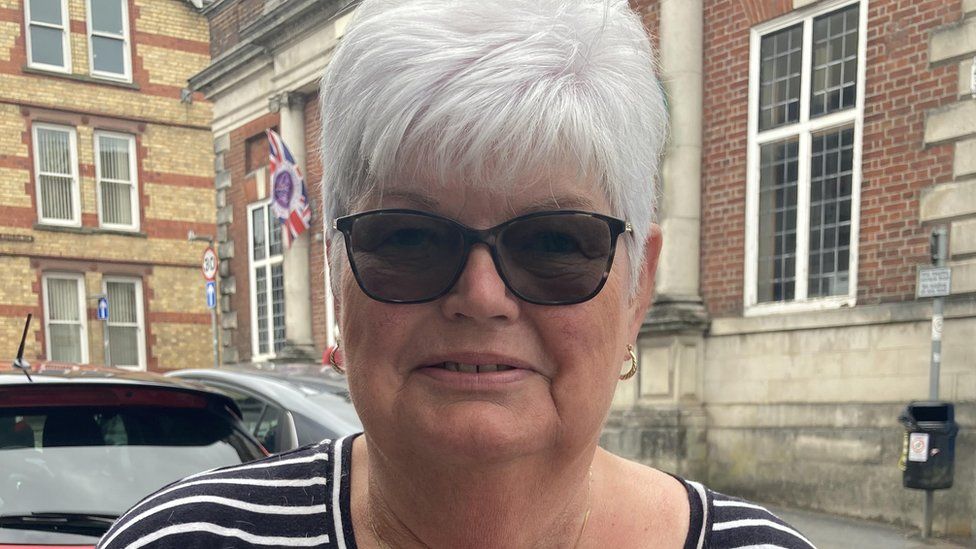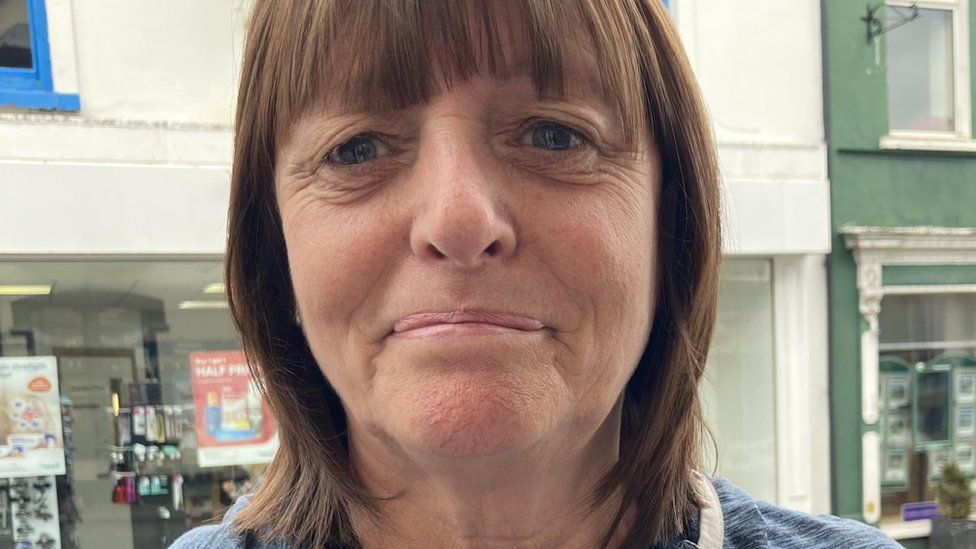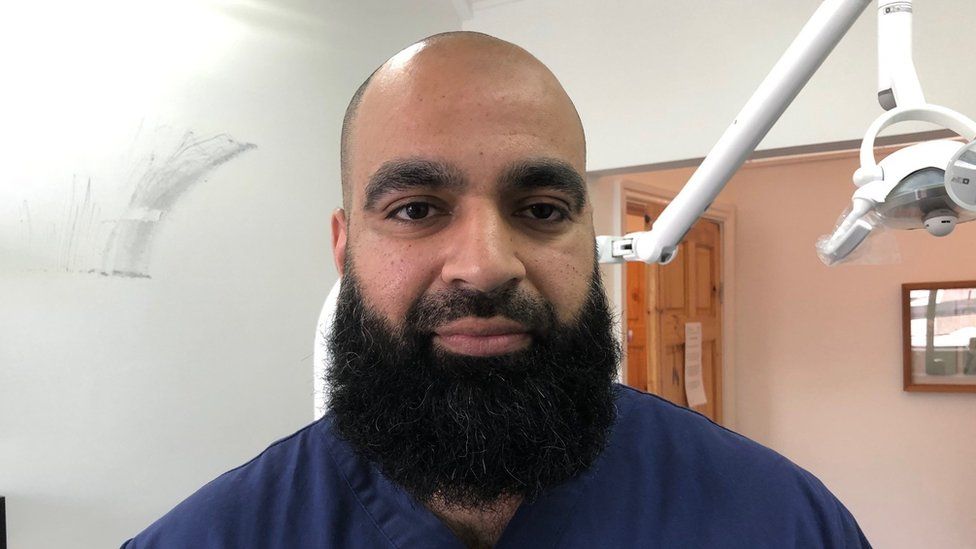From BBC Health News
Edit by Amal Udawatta
Rather than six-monthly check-ups, dentists will create a personal care plan setting out how often then need to come in
Most adults in Wales will now be invited to visit the dentist only once a year instead of every six months.
Wales' new chief dental officer said it will allow dentists to focus on patients who most need help.
Andrew Dickenson also said it would enable practices to take on up to 112,000 new NHS patients a year.
But the British Dental Association (BDA) said the claims "look like they've been cobbled together on the back of an envelope".
Prof Dickenson, who has been in post since April, said improvements in oral health mean routine six-monthly check-ups are "outdated".
He said over the past two decades there had been a steady decrease in tooth decay, with more adults keeping their teeth and fewer people wearing dentures.
"When we started the NHS over 70 years ago dental disease was prevalent across Wales and most people lost their teeth by the time they went into old age," he added.
'Patients can look after themselves'
"The high quality of teeth that we're now starting to see means the patients probably don't have to be seen as often as they used to.
"Patients actually can look after themselves and therefore we have to question what are they getting out of every six-month appointment."
Rather than six-monthly check-ups, dentists will create a personal care plan with people and advise them how often they need to come in.
This will allow patients who need more frequent care to be seen more regularly.
Anyone under 18 will continue to have six-monthly check-ups.
Patients who need emergency dental care will be seen quickly and should contact 111 to be referred for treatment.
The Welsh government said these changes will create places for an extra 112,000 NHS patients across Wales which Prof Dickenson said equated to "one extra patient, per day, per dentist, per practice".
"By increasing the number of dentists and helping them to work differently with their patients, we can ensure that everyone in Wales who wants NHS dental care, can get access to it," he added.
What do patients think?
Barbara Davies, from Dryslwyn, Carmarthenshire, has been seeing a dentist privately.
"I have an appointment every six months," she said. "It's very reassuring when I go every six months to know that my teeth are going to be okay you know if I need treatment and I can get it when I want it.
"But it is quite expensive. We have a 15-minute appointment so it is quite expensive for just 30 minutes in a year."
Liz Mahoney, who has moved to Llandeilo from Brecon, has been looking for an NHS dentist since before lockdown.
"I've been trying to get an appointment but it's all private - there's no NHS," she said.
"If I could get one [an appointment] for once a year it would be better than nothing at all, but I can't get anything unless I go private."
Deprived communities
Dr Imtiaz Khan, a dentist in Swansea with a practice which has about 90% NHS patients, believes the move could add 500 patients to their list.
"I've had people call from as far as Newport saying they've called around 65 different practices already and they just can't find a dentist," he said.
"I've had 10 to 200 different people call a day looking for a dentist. I wish I could take them all on but literally we don't have the space.
"No dentist really has space on their books at the moment… and it makes me sad."
But he said the change needs to be backed up by additional investment especially in recruiting new dentists.
However Russell Gidney, chairman of the BDA in Wales, accused ministers of trying to "conjure up new appointments".
"Sadly, these claims look like the were cobbled together on the back of an envelope," he said.
BDA Wales said most dentists already extend the recall interval beyond six months in line with guidance currently in place.
It also warned that "given the high levels of unmet need in the nation's most deprived communities," a "high proportion" of patients across Wales will still require more frequent appointments.
It added that "demoralised dentists are leaving the service in droves" and the "exodus" can only be halted through sustained investment "which the Welsh government has thus far declined to offer".
Welsh Conservative shadow health minister Russell George welcomed the move but said it had been a long time coming.
"This is the pragmatic solution to a problem exacerbated by the Labour government itself from years of underfunding compared to other devolved nations and failing to prepare for demand that was always going to build up during the pandemic, the consequences of which are clear to see through the NHS."
'Barely even a sticking plaster'
But Rhun ap Iorwerth, Plaid Cymru's spokesman for health, said: "Reducing access for healthy patients is not the solution Welsh government believes it to be - it's barely even a sticking plaster on what is a much wider issue."
He added; "The reality is that this will not address the shortage of dentists, the current postcode lottery in dental services, nor the issues with getting through on the emergency service number."
Welsh government ministers said they want to recruit more dentists and dental staff by offering support for students to find placements with practices in Wales and developing new working arrangements to attract more dentists to work here.
More than three-quarters (78%) of NHS dental practices have signed up to a variation of the Welsh government's dental contract, which means more practices are focusing on preventive care and treatment, rather than delivering activity targets as required by the old system.
The Welsh government is urging people having trouble registering for a NHS dental practice in their area to contact their local health board.
But it warned patients may have to wait longer for routine care as dentists work through the backlog caused by the pandemic and implementing new working practices.





Comments
Post a Comment